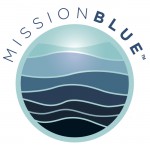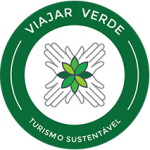Writer, explorer and presenter Will Milliard recently spent months living with three fascinating communities in the Coral Triangle for the BBC series Hunters of the Coral Triangle. The Englishman spent time with a Bajau Laut sea nomad community off Sulawesi Island, the traditional whale hunters of Lamalera Island in eastern Indonesia and the people of the Trobriand Islands in Papua New Guinea, with their unique system of shell exchange and a dubious reputation for free love…Here he shares his experiences and insights from the trip.
Sam Mansfield/Indus Films
Bajau Laut underwater hunters can hold their breath for up to five minutes and reach depths of almost 40 metres.
Well, you can’t get away from the obvious thing that they live their lives out at sea. I’ve never been to a community that has a closer relationship to Ibu Laut, the Mother Ocean. I was also struck by just how amazingly well adapted they are physically for harvesting the sea – they were so efficient at catching fish using their homemade pana spear guns, and it was so easy for them to hold their breath and go down. It’s not just the practicalities of shooting a fish, they just have this amazing intimacy with that water world – because they’ve spent a lifetime living and working on the reef. Their knowledge of fish behaviour was second to none.
Sam Mansfield/Indus Films
For the Bajau Laut, being underwater is as familiar as breathing air.
Sam Mansfield/Indus Films
The Bajau carve their own wooden googles that are good to up to 40 metres depth
Obviously their breath-hold spearfishing skills are incredible. But one thing that amazed me was the use of the octopus lure. They use the replica of an octopus to tap into the octopus’ innate sense of wanting to protect its territory. They don’t even use a hook – they lure it out of its hole and then kill it with their pana. It’s a hugely successful technique.
Sam Mansfield/Indus Films
An old hunter spots his quarry on the edge of the reef and prepares to go deeper to spear it.
I stayed with one family in a tiny stilt hut so you eat together, sleep together, wash in the same tiny room. Kabai was my guide really to the whole community and a skilled free diver. But I got really close to his son Lobu. On one side he was this very normal charismatic, cheeky, likeable child, but on the other side, he has a serious physical disability and it deconstructed the romanticism of living with the bajau. They are the quintessential sea people – all their eggs are in one basked, they are defined by their ability to fish. Lobu couldn’t swim which meant he couldn’t catch fish. For that reason, the community shunned him, believing that he was cursed. That was heartbreaking. My time with the Bajau was a deeply emotional experience.
Indus Films
Will Milliard heads out on the whale hunt with not a little trepidation.
Indus Films
These small canoes and homemade harpoons and weapons are all the Lamalera hunters have at their disposal.
The whale hunting community on Lamalera live on a really infertile patch of volcano, so they can’t grow crops or keep enough livestock to feed themselves. What they do have is this two mile deep ocean trench right in front of their village which is like a superhighway for big species like dolphins, manta rays and sperm whales. They need whale meat to subsist and they also trade it for vegetables. Whale meat can last up to 12 months, like biltong. They only take around 5 or 6 whales each year and the International Whaling Commission has approved the fishery. Still, it was really difficult for me to accept.
Indus Films
A Sperm Whale breaches as a hunter prepares to hurl his harpoon.
Yes, I was right there in the thick of it recording with a handicam. Looking back, I realise how naïve I was. I just managed to catch the last boat heading out on the hunt and when we reached the others, one had been capsized by a whale and its crew had all climbed onto the hull. And I thought, bloody hell, I might die here! The hunters had already harpooned one whale and secured it with hooks and suddenly another one breached – it must have been 12 metres long, 25 tonnes. Our captain tried to harpoon it and somehow managed to miss. Then a guy from another boat ripped off his shirt, grabbed the harpoon and leapt on the whale’s back. After that, it got really ugly. Everyone stabbed at the whale until the sea turned red. Finally one hunter sawed through its spine with his machete. It was horrific, adrenalizing, terrifying. But there was no bloodlust. They really seemed to have respect for the animals they were killing.
Indus Films
Whale carcasses are dragged onto the beach after the hunt.
I did eat some preserved whale – food stocks were running low and they were eating their reserves. I worried about it morally, but I had gone there to immerse in the culture and environment, it would have been rude not to try it. For the record, it tasted absolutely foul!
Indus Films
Will Milliard after the hunt with a dead sperm whale behind him. The whale will help feed the community for many months.
Indus Films
Cruise ships are an incongruous but increasingly common sight for the Trobriand Islanders of Papua New Guinea
The Trobriand Islands felt more like a traditional documentary. I’d heard about this system of exchange called the Kula Ring. It’s a way for a group of islands to stay connected with one another by exchanging valuable shell necklaces and armbands – they’ve been doing it for centuries. It’s a way of acquiring status and the elite use the shells to consolidate their power and forge alliances with other powerful leaders. It’s really intricate and complex. It costs a lot to arrange a Kula voyage to the neighbouring island – not in money, but in yams.
Trobriand Islanders during a Kula exchange gathering
Absolutely. A P&O cruise ship arrived while we were filming and suddenly everyone was bringing out carvings and trinkets to sell the tourists. There isn’t even a carving culture on the Trobriand Islands. Someone had even done a carving of an African elephant! They use the cash to buy tinned goods and the danger is that it erodes the whole yam, shell system. At the same time P&O had paid for these traditional Kula canoes to greet the ships – so that kind of helped us with shooting.
Indus Films
Will Milliard with a Trobriand Islander showing off a valuable shell necklace
The thing that all three of these cultures shared was the fact that they were communities in flux, in the grip of profound change. That interested me. Yet they were keeping up their traditions and each of them was very resilient. I did wonder if this might be the last account of their unique lifestyles – but then they’ve lasted this long, so who’s to say what might happen in the years to come.






